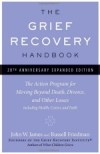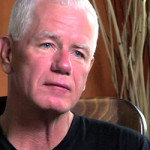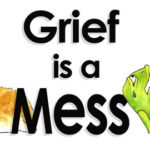
In Part One of “relief grief” we talked about how the death of a child, sibling, parent or partner can bring relief to family members. However, such relief is most often hidden to escape community criticism. That said keeping quiet does nothing to help a family work through the emotional scars they have often inherited.
If you have experienced ongoing psychological and/or physical abuse, you need to keep a few things in mind:
- You are entitled to accept and explore whatever you are feeling.
- Forgiveness is pure gold, but don’t rush into it. At first just notice what takes place in your body when a memory creates a physical “charge.” Take some time to sit down, close your eyes, connect to your breath and allow your anger and/or fear to drain from your mind and body.
- Accept that while you had little control over the deceased’s behavior, you do have control over how you interpret the affect of their behavior on your future.
- Be wary of giving the experience so much power that you become a permanent victim.
- Consider seeking professional help to work through your resentment.
Don’t let a dysfunctional past step in the way of a functional future
John James and Russell Friedman developed a Relationship Graph in their book, The Grief Recovery Handbook that has been used successfully by thousands to complete problematic relationships. What follows is one of their tools—simplified. (You might want to read The Grief Recovery Handbook for the entire process of resolving conflicted relationships.)
Exercise: What would you have liked to have been different, better, and/or more
James and Friedman suggest one way to resolve feelings of anger and guilt is to consider what you wish had been different, better, and/or more. They point out that even if you spent months caring for the deceased, you likely didn’t risk having conversations about uncomfortable topics. That said it is never too late to work through feelings and find peace.
When developing your different, better and/or more lists, specifically address the emotional pain the deceased caused you as well as the pain you caused them, if that is the case. In addition, include what you would have liked your family member to have said and done, as well as what you would have liked to have said and done, and then respond to each circumstance with a statement of apology, forgiveness, or relevant comment.
- Apology: An apology is self-explanatory. If you find yourself hesitating, ask yourself if your need to be right is getting in the way.
- Forgiveness: What did the deceased do or not do, say or not say that you wish they had? Remember, you are forgiving to free yourself, not the other person. Forgiveness is always appropriate when there is no hope of something being different or better. (Note: be prepared to give up being self-righteous.)
- Significant Emotional Statement: Use the following format to list what you’d like the deceased to know.
I wish I had (been/said/done) ________ more often.
I wish that you had (been/said/done) _____ more often.
I wish I had not (been/said/done) _____ as often.
I wish you had not (been/said/done) _____ as often.
Writing a completion (not farewell) letter
After creating your list of apologies, words of forgiveness, and significant statements, write a letter to the person. A sample format could be:
Dear ______________,
In reviewing our relationship:
- I apologize for …
- I forgive you for …
- I want you to know that…
It is my intent to say goodbye to any unresolved emotional pain between us. In apologizing, forgiving, and being honest about what I wish had been more, better, or different, I am now ready to move into my future.
Signed _______________
James and Friedman suggest you do not
- ask the deceased any questions,
- include comments such as “we did our best,” or
- ask the deceased for forgiveness. (If you use this for a person who is alive, don’t give them the letter. Why not? Because this exercise is about you).
Read the letter aloud to a photo of the deceased or at the gravesite. If you unravel emotionally, continue speaking. Saying what needs to be said doesn’t mean you will never be angry or sad again, nor will you forget unpleasant memories; but it does mean that you are in a better frame of mind to live a healthy life.
Remember forgiving is not about excusing or making light of the harm that took place. It is about changing your relationship to what happened, and then releasing any hold it has on you. If you get stuck in the process ask yourself “What do I risk by not forgiving? What do I gain if I do?”































